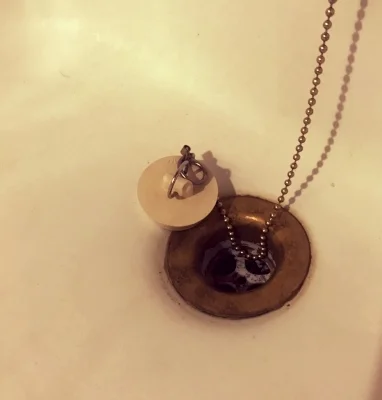When I was a little girl, as I remember it, everyone came to our house for Thanksgiving dinner. Tables were put end-to-end to make room for our extended family, and while there was a "kids table" set up, my cousins and I preferred to hide under one of the other tables. Sure that the grown-ups couldn't see us, we sat under the table as life continued on around us, and the adults played along with our little game. What with our giggles and little feet poking out from beneath the linen table cloths, we were hiding in plain sight. Sometimes we hid for the thrill of it all, but mostly it was a strategic ploy to avoid Uncle Blake's lumpy gravy and my aunt's famous creamed onions. But eventually we had to leave our little hidey hole, and would find, much to our dismay, our untouched plates still awaiting us, and the gravy was now not only lumpy, but cold. And the creamed onions were, well, still creamed onions.
When my daughters were little girls, they loved to play hide and seek. One of their favorite hiding places was under a blanket. Sure that I couldn't see them, they sat as life continued on around them, and I played along with their little game. "Now where could they be?" I would wonder aloud, well within their earshot. What with their giggles and little feet poking out from beneath the blanket, they were hiding in plain sight. Sometimes they hid for the thrill of it all, but mostly it was a strategic ploy to avoid any unwelcome chores, or to delay the inevitable bedtime. Eventually they had to leave their little hidey hole, and would find, much to their dismay, the chores still awaited them. And bedtime was, well, still bedtime.
Hide and seek is not only a childhood game. Most of us play it for most of our lives. And like me, my cousins, and my young daughters, we hide smack dab in the middle of the room which is our life, hoping not to be found by whatever it is that we'd rather avoid. But unlike the unwanted lumpy gravy, creamed onions, childhood chores and the inevitable bedtime, now we hide from more serious things. Pain and discomfort, unresolved issues and challenging conversations, unanswered questions and unfamiliar territory, important decisions and necessary changes. These are the things from which I have often hidden. Still do sometimes. But when I do, the game always ends the same way. With lumpy gravy.
Every one of us does it. We play hide and seek from our own life, and, we hide under tables of our own choosing. My tables have included, but are not limited to:
One too many glasses of wine.
Taking care of everyone else.
Staying busy, no matter what.
Blaming others for the state of my life.
Binge watching my latest favorite series
We hide under the blankets of our own weaving, made up of the threads of our long held stories, fears, wounds and sorrows. My blanket has been made up of fabrics including, but not limited to:
I am not enough.
I might fail.
It's too hard.
It will be too painful.
I don't know how it will turn out.
But our tables don't keep us safe, they keep us small. Our blankets don't protect us, they prevent us from living the life that is ours. Hiding from our lives today only means running back into them again tomorrow. Over, and over, and over, and over, and over...
So come on.
Come out, come out wherever you are.
It's time to come out from our hidey holes and get on with our messy, complex, beautiful, imperfect, creative, compassionate, flawed, and, one-of-a-kind miraculous lives. Our life is waiting for us, and so is the world. And, no matter how long we crouch under our tables and huddle under our blankets, those creamed onions will be, well, still creamed onions.

















